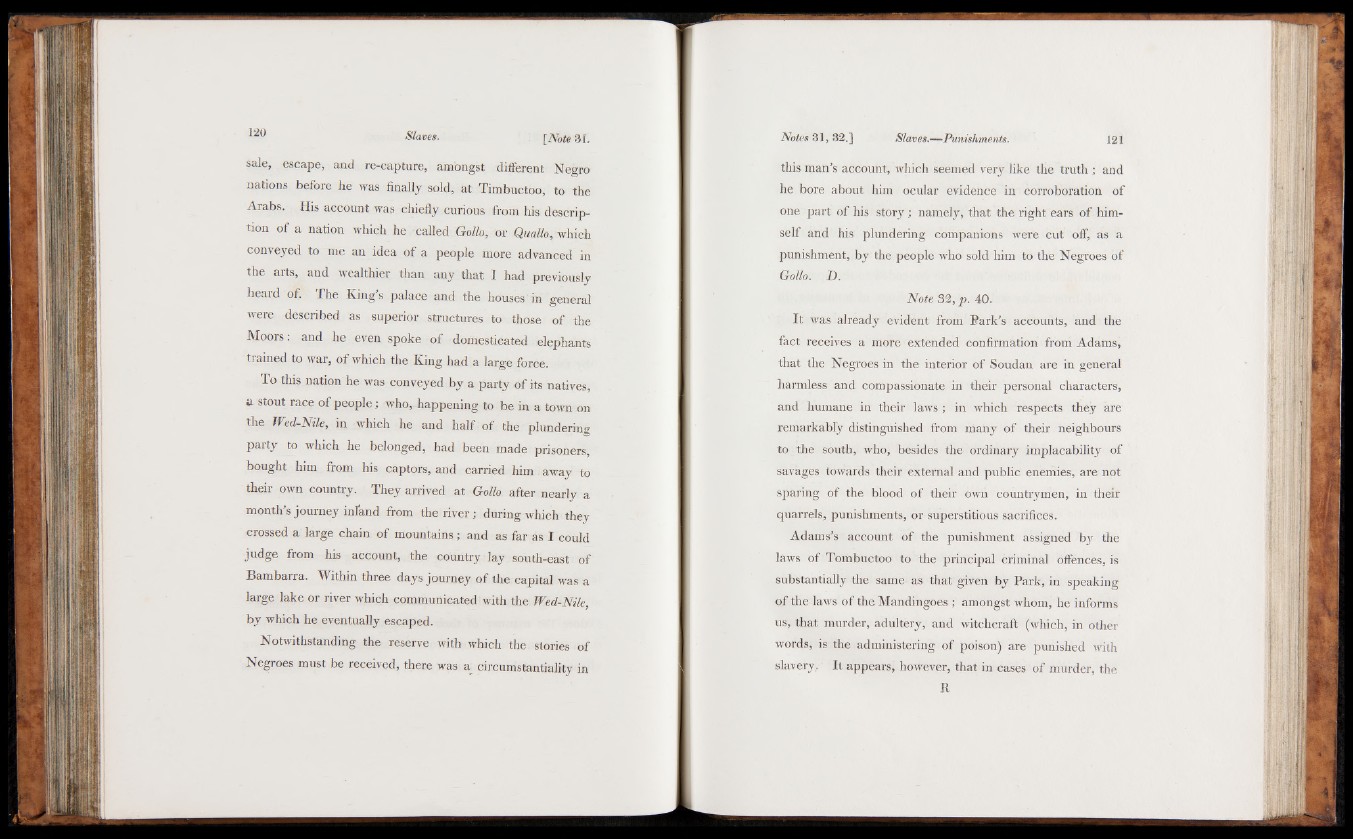
120 Slaves. [Note 31.
sale, escape, and re-capture, amongst different Negro
nations before he was finally sold, at Timbuctoo, to the
Arabs. His account was chiefly curious from his description
of a nation which he called Gollo, or Quallo, which
conveyed to me an idea of a people more advanced in
the arts, and wealthier than any that I had previously
heard of. The King’s palace and the houses in general
were described as superior structures to those of the
Moors: and he even spoke of domesticated elephants
trained to war, of which the King had a large force.
To this nation he was conveyed by a party of its natives,
a stout race of people; who, happening to be in a town on
the Wed-Nile, in which he and half of the plundering
party to which he belonged, had been made prisoners,
bought him from his captors, and carried him away to
their own country. They arrived at Gollo after nearly a
month’s journey inland from the river; during which they
crossed a large chain of mountains; and as far as I could
judge from his account, the country lay south-east of
Bambarra. Within three days journey of the capital was a
large lake or river which communicated with the Wed-Nile
by which he eventually escaped.
Notwithstanding the reserve with which the stories of
Negroes must be received, there was a circumstantiality in
Notes 31, 32.] Slaves.—Punishments. 121
this man’s account, which seemed very like the truth ; and
he bore about him ocular evidence in corroboration of
one part of his story ; namely, that the right ears of himself
and his plundering companions were cut off, as a
punishment, by the people who sold him to the Negroes of
Gollo. D.
Note 32, p. 40.
It was already evident from Bark’s accounts, and the
fact receives a more extended confirmation from Adams,
that the Negroes in the interior of Soudan are in general
harmless and compassionate in their personal characters,
and humane in their laws ; in which respects they are
remarkably distinguished from many of their neighbours
to the south, who, besides the ordinary implacability of
savages towards their external and public enemies, are not
sparing of the blood of their own countrymen, in their
quarrels, punishments, or superstitious sacrifices.
Adams’s account of the punishment assigned by the
laws of Tombuctoo to the principal criminal offences, is
substantially the same as that given by Park, in speaking
of the laws of the Mandingoes ; amongst whom, he informs
us, that murder, adultery, and witchcraft (which, in other
words, is the administering of poison) are punished with
slavery.. It appears, however, that in cases of murder, the
R